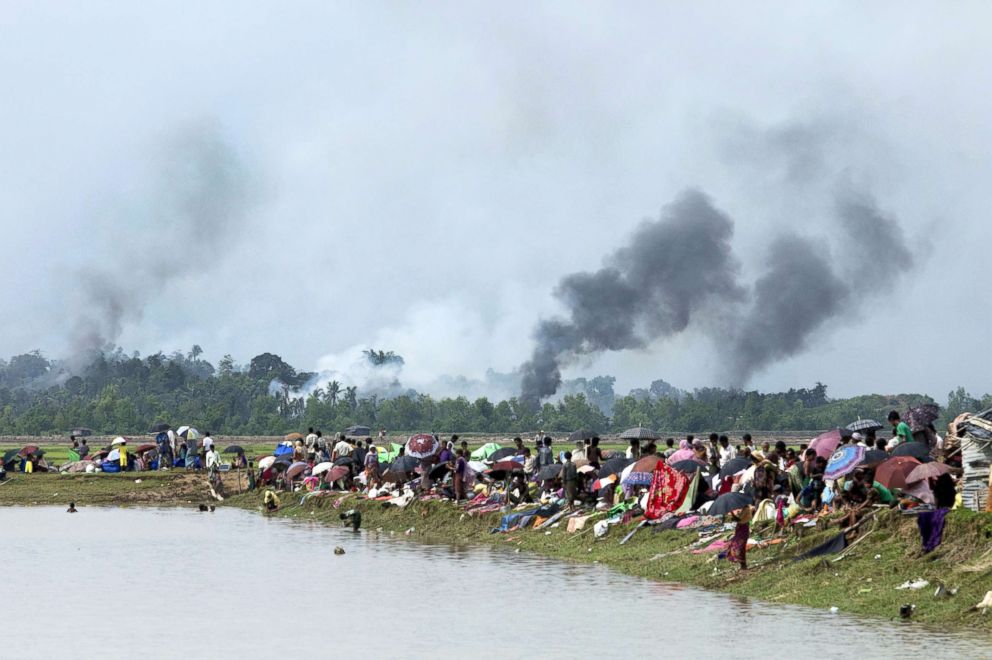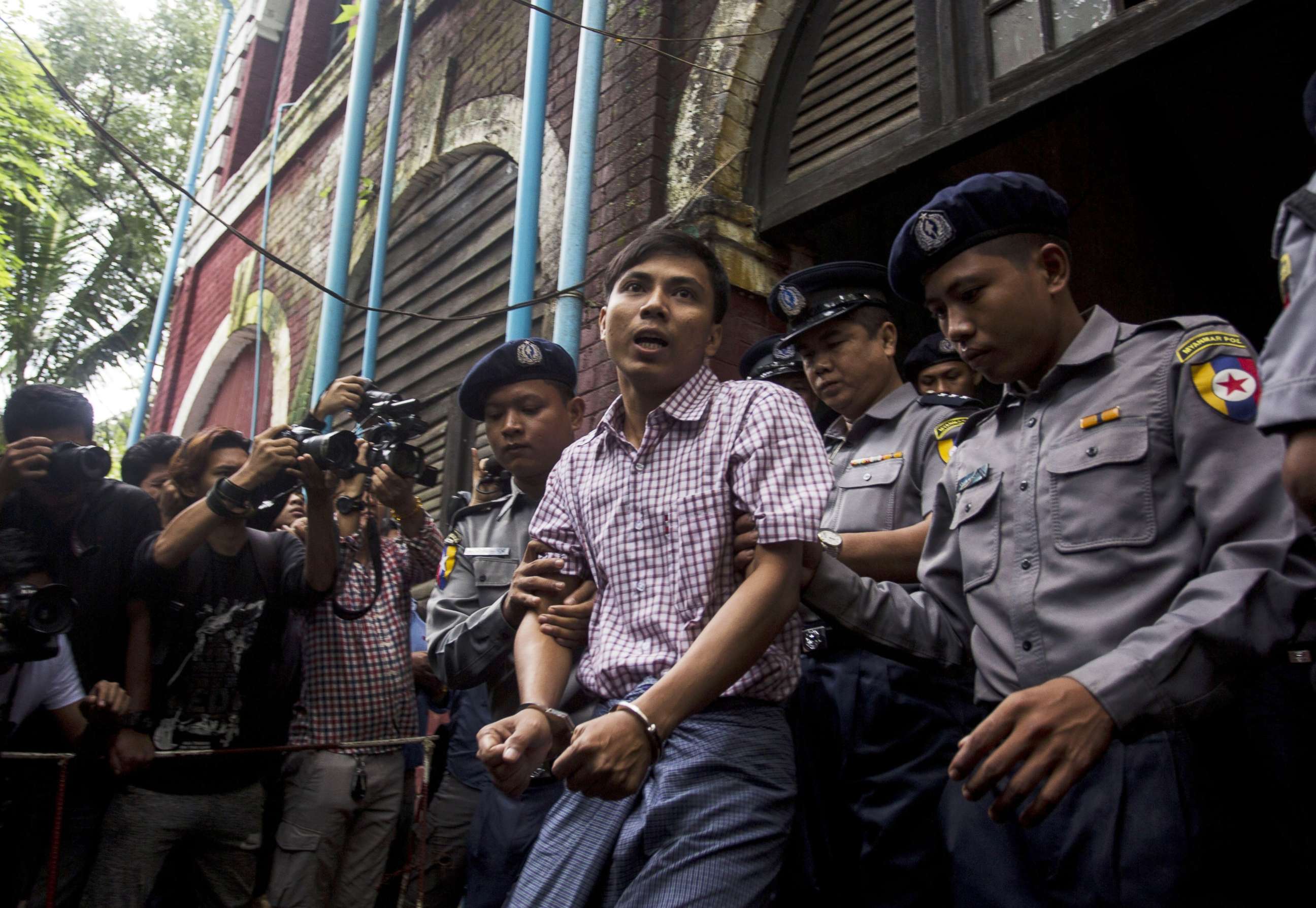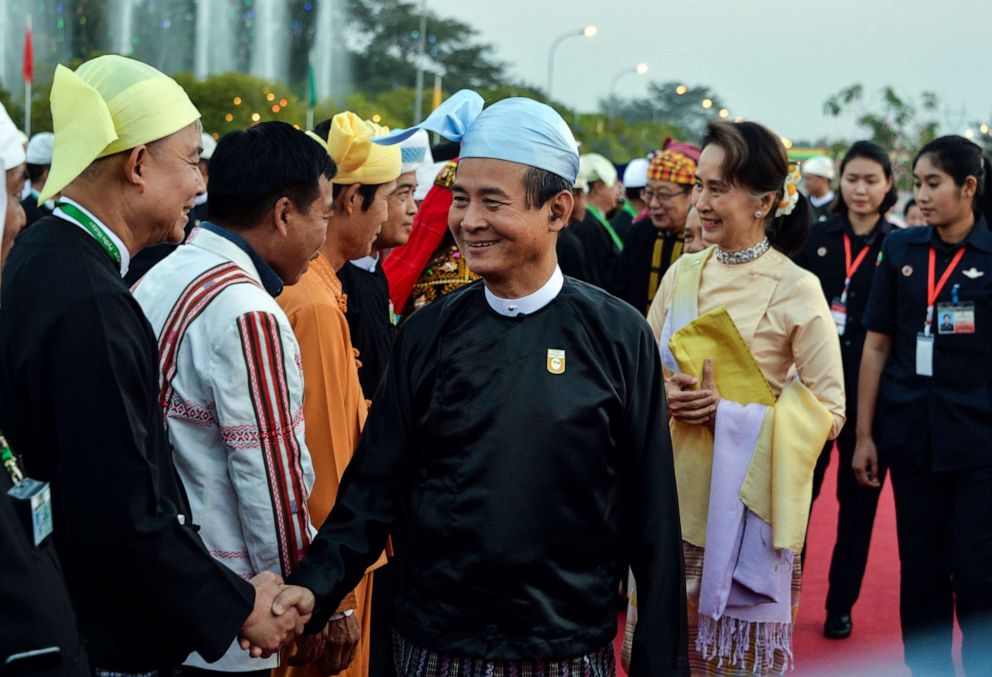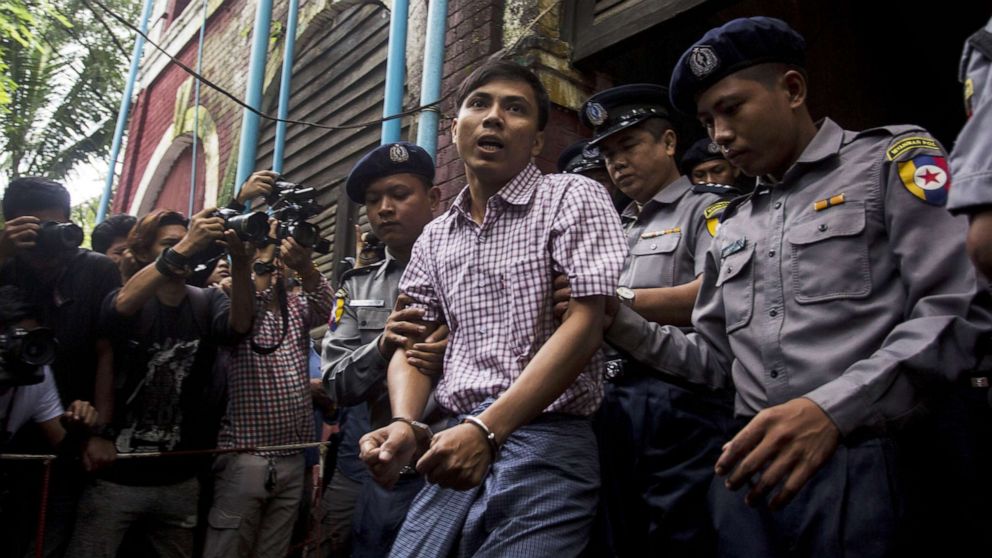Congress steps in, once more, to fill Trump's silence on human rights in Myanmar
Amid ongoing concern about human rights in Myanmar, including the violence against the Rohingya ethnic minority, Congress is again trying to step in to fill a gap left by the Trump administration.
A bipartisan pair of lawmakers are set to introduce legislation in the House calling out Myanmar's government for its ongoing detention of political prisoners, including two Reuters journalists, and to provide new funding to the State Department to support organizations working for the prisoners' release, according to an advanced copy of the bill shared first with ABC News.
A group of Senate Republicans and Democrats introduced their own measure last week that would impose sanctions and other penalties on Myanmar for human rights abuses.
The legislation comes just days after Myanmar's president issued 9,551 pardons on Wednesday, but only two for political prisoners, according to the Assistance Association for Political Prisoners, an independent human rights organization that called the news "disappointing."
Lawmakers in the U.S. have long been disappointed in President Donald Trump's response to the human rights situation in Myanmar. Myanmar's military began a systematic campaign to eradicate the Rohingya, a Muslim-majority ethnic group in the country's northwest, in August 2017. Trump has never spoken publicly about the violence.

"We want to push hard to make sure that the United States is doing everything it can to advance the cause of human rights in Myanmar, both in terms of the Rohingya and, as our bill suggests, broadly throughout society," said Rep. Andy Levin, D-Michigan, who is co-sponsoring the bill with Rep. Ann Wagner, R-Missouri.
While senior officials like Vice President Mike Pence and former U.S. Ambassador to the United Nations Nikki Haley have condemned the violence as "ethnic cleansing," the Trump administration has been criticized for being slow to sanction Myanmar military officials and units, and declining to pressure the government on other human rights abuses. It has also stopped short of calling the campaign against the Rohingya a "genocide," despite many other organizations, including the United Nations and the U.S. Holocaust Memorial Museum, using that term.
Last December, Republicans in the House of Representatives sent one of their few strong rebukes against Trump with a resolution calling the Rohingya crisis a "genocide."
"The president still has not even said it was what it was," Levin told ABC News. "We would like to see a lot more just roll-up-your sleeves activity," especially on political prisoners.

Myanmar, formerly known as Burma, was ruled for decades by a brutal military junta, but it began a transition to a power-sharing military-civilian government in 2010 that led the Obama administration to ease sanctions against the country. While the overall human rights situation improved with increased civilian control, including the release of many political prisoners, the violence against the Rohingya and other ethnic minorities set back progress. Now, human rights groups are increasingly concerned that issues like freedom of expression and peaceful assembly are slipping away.
"The political prisoner issue has been an unfortunate and continuing challenge in Myanmar," said Erin Murphy, who worked for the State Department's special representative for Myanmar. "The recent amnesty by Myanmar President Win Myint likely fell short of expectations."
There are currently over 350 political prisoners in Myanmar, according to the Assistance Association for Political Prisoners. That includes journalists, environmentalists and peaceful protesters, along with high-profile cases like Aung Ko Htwe, who has been detained since 2017 for speaking out about his experience as a child soldier, as well as Reuters reporters Wa Lone and Kyaw Soe Oo, who were arrested in December 2017 after their story on a mass grave of Rohingya victims was published.
"We have repeatedly called for Wa Lone and Kyaw Soe Oo's immediate release, and our Embassy in Rangoon continues to engage publicly and privately" to secure their freedom, a State Department spokesperson told ABC News.

But they declined to comment on the issue of political prisoners, whose detention and at times abuse has been a longstanding issue. The department's 2018 human rights report, released in March, made particular note of the government's detentions, the "harsh and sometimes life-threatening" conditions of prisons, the use of torture and abuse against prisoners, particularly ethnic minorities, and the "significant surveillance and restrictions" political prisoners face after release.
"For democracy to take root in Burma, the government needs fair laws, safe prisons, and a competent justice system," Rep. Wagner told ABC News. "Hundreds of political prisoners have been released in the past few years, but there are too many still behind bars."
The State Department has provided some funds for aid groups that advocate for political prisoners, but an aide to Levin said they don't know of any assistance the U.S. provides for this issue in Burma specifically, adding, "This bill would fill that void."
Advocates say that funding is also necessary because of how the government has adapted colonial-era laws to increasingly harass human rights activists and political opponents.
"The level of funding and type [of] support has not kept up with the changing tactics of the new government," said Francisco Bencosme, the Asia-Pacific advocacy manager for Amnesty International, which has endorsed Wagner and Levin's bill.
An aide to Wagner said that the House bill, and the Senate bill introduced last week, could end up merging, "And we will be pushing all avenues to help get this language into law."




